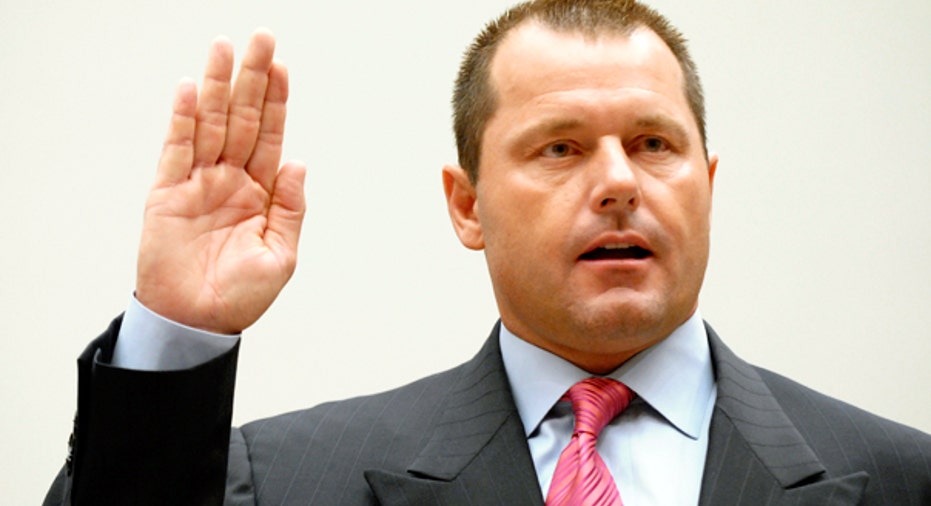Restoring Your Reputation in the Court of Public Opinion

There's been a lot of reputation management lately of high-profile figures in the world of business, sports and politics. This week, Roger Clemens, one of the most decorated pitchers in MLB history, was acquitted on all charges that he lied to Congress when he denied using steroids to extend his career.
No doubt a huge legal victory for Clemens, but the court of public opinion is an entirely different beast.
Cyclist Lance Armstrong finds himself in a similar situation. The seven-time Tour de France winner is facing charges so serious that the U.S. Anti-Doping Agency is considering banning him from the sport.
For Clemens and Armstrong, there’s still an immense amount of damage control that needs to be done to restore the reputations they once had. Ditto for former Senator John Edwards, who last month was acquitted of one charge of campaign-finance fraud. Mistrial hasn’t cleared Edwards’ tarnished reputation.
Companies are also working overtime as well to restore their reputation luster. JPMorgan Chase is among the latest corporate casualties, thanks to a $2 billion-plus trading loss.
A withered reputation—whether personal or business—doesn’t have to be permanent. Turnaround takes time, relentless focus and rock-solid sincerity. These five steps can help get your rep back on track:
No. 1: Admit your mistakes. Take a cue from JPMorgan Chase CEO Jamie Dimon. As bad news broke, Dimon faced the music with these words: "We know we were sloppy, we know we were stupid, we know there was bad judgment.” Speed to admit mistakes matters in reputation restoration. Have a simple, straightforward message that tells it like it is. Dimon has taken that message even further telling Congress last week, “We have let a lot of people down, and we are sorry for it.” He went on to say, “When we make mistakes, we take them seriously and often are our own toughest critic.” Equally humbling was John Edwards’ message, in the aftermath of his mistrial. “I did an awful, awful lot that was wrong, and there is no one else responsible for my sins,” he said, standing tall, head up and eyes directly fixed on the crowd standing around him. Body language can positively punctuate the message. It also can crumble it instantly.
No. 2: Don't let someone do the talking for you. Whether you’re the CEO of a Fortune 500 company or a partner in a small start-up—be your own spokesperson. Don’t send an outside agency or junior staffer to be the messenger. Be the face and voice of that tough message. For example, calling a customer to apologize for a late delivery or quality issue—that’s a priority that doesn’t get passed off. Own up to the performance highs and lows of yourself—and your company.
No. 3: You've gotta say it—not send it. This is a big one. Don't hide behind email and don’t make that important phone call to an angry customer at 6 p.m. after he or she has left work for the day. If your company missed a deadline or delivered a piece of bad equipment, you have to relay your sincerest apology “live” on the phone or if possible in person. Let me say this again—no recorded voicemails or emails. For it to be real and have legs, your message has to be direct, live and personal.
No. 4: Ask for feedback. A great question to pose is: What do we (or I) need to do to restore your confidence in our company (or me)? Ask the client, and then make sure you deliver on it. Ask a co-worker whom you’ve let down that question. It’s powerful in signaling humility. It also opens the door to constructive conversation about ideas and improvements that may have never been on your radar screen. There’s much to learn from the perspective of others. Use this feedback to help you and your company get better.
No. 5: Keep working it. Remember, just because you've apologized doesn't mean you're in the clear. People will be sizing you up in the aftermath to assess whether you walk your talk—for the long term. Be like former New York City Mayor, Ed Koch, who constantly posed to Big Apple residents and visitors, “How am I doing?” Great question! You need data points beyond yourself to gauge the progress being made in revitalizing your reputation. Bring the outside and use it to revive your reputation star.
Linda Dulye is internationally recognized for helping many companies go spectator free. A former communications leader for GE and Allied Signal, Linda established Dulye & Co. in 1998 with a practical, process-driven approach for improving communications and collaboration through an engaged workforce— a formidable competitive advantage, that she calls a Spectator-Free Workplace™.



















